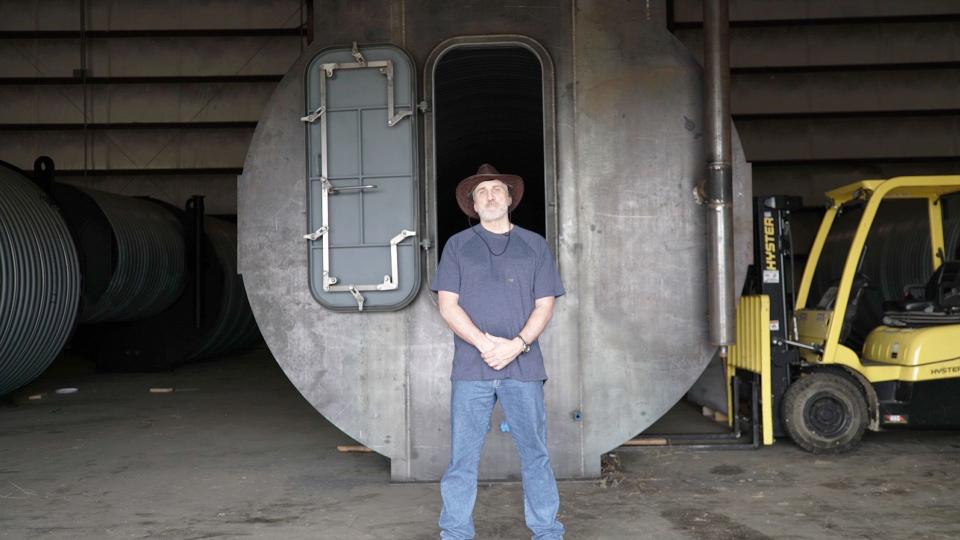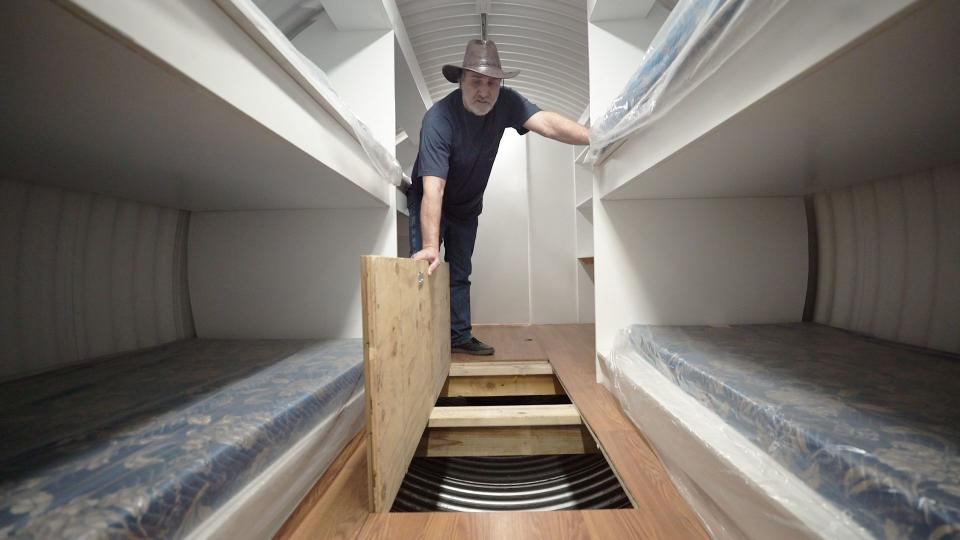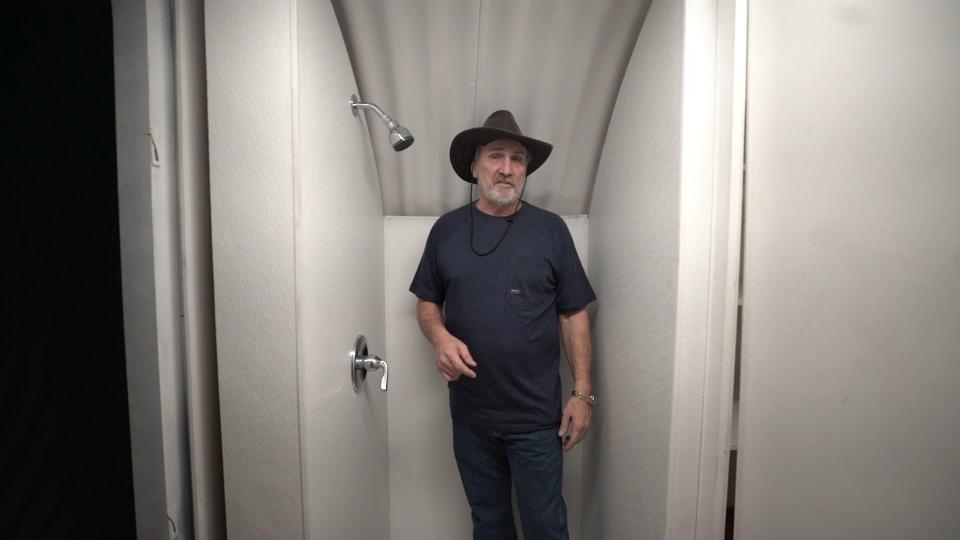'Mainly wire transfers': Inside the secretive and lucrative business of doomsday bunkers
In the business of selling pre-made doomsday bunkers, it pays to be discreet.
“The people [who] buy bunkers don’t like the government or their neighbor knowing they’ve bought a bunker. Ron Hubbard, President of Atlas Survival Shelters, told Yahoo Finance about his customers (video above). “So when we sell somebody a shelter, most of the time, almost every time, we don’t ask their name.”
That same discretion manifests in the preferred payment methods as well.
“I would say 90% of clients are just paying cash for the shelter,” Hubbard said at in an interview in northern Dallas, Texas. When pressed later, he said it’s actually “more like 100%.”
How exactly?
“Mainly wire transfers,” Hubbard said at his facility in northern Dallas, Texas. “Not checks because they don't want to government or the bank to be able to see they're buying a shelter.”

‘You know the door in [Youtuber] Jake Paul’s mansion?’
Hubbard is the type of character who continually gave us his cell phone to record 45-second videos of him in bunkers to send to potential clients.
And each clip starts out: “Hi Cynthia ... Hi Peggy ... This one right here has the HVAC/plumbing/dishwasher/wine-cooler you wanted ...”
Hubbard is a sort of hustler. He started Atlas Survival Shelters five years ago ago after cheap, imported doors from China began to put his custom door shop out of business.
“You know the door in [You Tube star] Jake Paul’s mansion?” Hubbard, a smooth self-promoted, told us unsolicited. “Yeah I made that. He wanted the bubble design just like that.”

‘People over 40 have savings’
Hubbard’s journey as a bunker salesman began when a friend first introduced him to survival bunkers and Hubbard noticed how poorly the doors were made.
“A lot of other companies don’t know what they’re doing when it comes to air and water sealants for their structures,” Hubbard said. It’s a major flaw. I thought I could do them better. Then I just thought I could make the entire survival kit and sell that.”
Hubbard’s instinct tuned out to be lucrative: He said the Dallas facility will be the world’s largest bunker warehouse when it’s fully open. (He owns another warehouse in California in California.)

Another part of the success of Atlas Survival Shelters is the prices. The bunkers are usually significantly below competitors’ prices for similar inventory. Hubbard said his entry level pre-made bunker goes for $25,000. And this is— believe it or not— relatively low cost, considering the demographic that usually buys doomsday bunkers.
“You gotta keep in mind the average age of somebody buying a shelter is over 40,” Hubbard noted. “And people over 40 have savings.”
This means Atlas doesn’t have to endlessly collect monthly receivables on each bunker for 15 to 30 years like a house. Most bunkers are paid for upfront and in-full, making Atlas Survival Shelters an extremely liquid company.

‘They’re very afraid of their neighbors knowing’
At the end of the day, the customer is buying one of these bunker to prepare for a disaster. Part of that preparation often involves keeping one’s name and location hidden from plain view.
“If your name is Bob and you’re from Ohio we’ll actually invoice you as ‘Bob in Ohio,’” Hubbard explained, “and we’ll ship it to the Walmart in your town because we don’t actually want your address where the shelter’s going.”
And this is exactly how people want the transaction to occur, given that they are regularly “very afraid of their neighbors knowing they have a shelter with food and supplies.”

Hubbard told Yahoo Finance that on average Atlas Survival Shelters sells at least one bunker or shelter a day. At the $25,000 price point, that translates to roughly $9 million per year in revenue. And Hubbard said his bunkers can cost as much as $250,000.
“We do have runs on shelters every now and then.” Hubbard said when asked how day-to-day geopolitics affects consumer purchasing habits. “When something happens or there’s a missile crisis, all of a sudden every shelter will sell out in two hours. It’s either feast or famine that’s the nature of the business.”
Right now, Hubbard appears to be feasting.
WATCH MORE: Air Force veteran worried about EMPs takes us into his doomsday bunker
Follow Yahoo Finance on Twitter, Facebook, Instagram, Flipboard, LinkedIn, YouTube, and reddit.